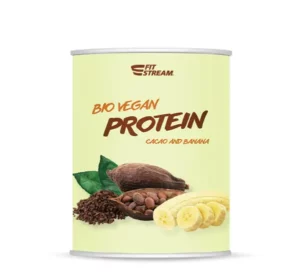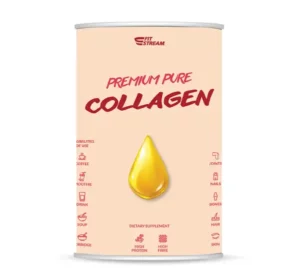Protein is a key macronutrient that plays an essential role in the structure, function and regulation of bodily functions.
Something from protein theory
Proteins are made up of amino acids, which are the building blocks of life. They are involved in many functions in the body, including tissue repair, enzyme production, hormone synthesis, immune function, transport of molecules, and providing energy when needed.
Where do we get protein in our diet?
Protein is found in foods of both animal and plant origin. Animal sources include meat, fish, eggs and dairy products, which are considered complete proteins because they contain all the essential amino acids. These are the ones that the body cannot make on its own and must be taken in the diet. Plant sources include legumes (beans, lentils), soy products, nuts, seeds and whole grains. While plant proteins may lack one or more essential amino acids, a combination of different plant protein sources can provide a comprehensive amino acid profile and therefore all the essential amino acids. For example, a combination of cereals (rice) and legumes (lentils).
If you prefer a primarily plant-based diet, eat a variety of protein sources: include a variety of plant-based protein sources in your diet. This can include legumes (beans, lentils, chickpeas), soy products (tofu, tempeh, edamame), quinoa, hemp seeds, chia seeds, nuts, seeds and whole grains. By combining different plant protein sources throughout the day, you can improve your amino acid profile and ensure you are getting all the essential amino acids. Soy is a unique source of plant protein because it is considered a complete protein containing all the essential amino acids. Include soy products such as tofu, tempeh and edamame in your diet to ensure a good balance of amino acids.
How much protein should I consume daily?
Protein requirements vary depending on factors such as age, gender, weight, physical activity level and general health. The recommended daily amount of protein is generally around 1 gram per kilogram of body weight for adults. When building muscle, we can also increase the intake to 1.5 - 2 grams per kilogram of body weight. Protein is essential for muscle growth and repair. Consuming sufficient protein along with resistance exercise can promote muscle protein synthesis and promote muscle development. Athletes, bodybuilders and individuals who engage in regular intense exercise may require a higher protein intake to support their muscle building goals.
Insufficient protein intake can lead to protein deficiency in the body, which can result in muscle wasting, impaired growth and development (especially in children), weakened immune function and impaired wound healing. Protein is not stored quickly, so it is optimal to consume protein at every meal, every day. Simply in smaller amounts (about 25-30 g in the main meal) and we can easily achieve the optimal daily dietary protein intake. On the other hand, excessive protein intake, especially from animal sources, can put a strain on the kidneys, contribute to nutrient imbalances and can also cause digestive upset (bloating, feelings of sluggish digestion, especially with higher meat intake).
Protein and weight loss
Protein plays an important role in weight loss. It increases satiety and can help reduce appetite, leading to a reduction in calorie intake. Protein-rich foods can also help preserve muscle mass during weight loss, which is important for maintaining metabolic rate and promoting a healthy body composition.
Protein supplementation
In most cases, a well-balanced diet can provide enough protein. However, some individuals, such as athletes with high protein requirements or people with medical conditions affecting protein metabolism, may benefit from protein supplementation. Protein supplements come in a variety of forms, including protein powders (whey, casein, soy, pea, rice). The most commonly encountered protein on the market is "whey" and therefore whey concentrate, which is quite sufficient for supplementation in the average exerciser. However, if we exercise regularly and supplement protein in the form of a powder on a regular basis, we can also try whey protein isolate, which is easier to digest. However, for the general population, not professional athletes, whey concentrate is quite sufficient.
It is important to remember that while protein is essential, a balanced diet with plenty of nutrient-dense foods is key to overall health. If you have specific dietary concerns or other health issues, it is recommended that you consult with a healthcare professional or nutritionist for personalized advice before supplementing.
If you need to replenish your protein and are looking for a quality protein, try our Organic Vegan Protein. A protein that is suitable for celiacs, vegetarians, vegans and people with lactose intolerance.





